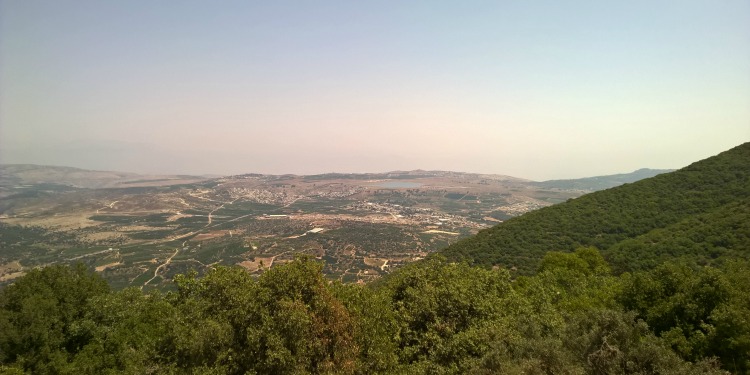Heal Our Land
The Fellowship | September 25, 2019

“When I shut up the heavens so that there is no rain, or command locusts to devour the land or send a plague among my people, if my people, who are called by my name, will humble themselves and pray and seek my face and turn from their wicked ways, then I will hear from heaven, and I will forgive their sin and will heal their land.” — 2 Chronicles 7:13-14
The Hebrew month of Elul, which means “search,” is a time of intense soul-searching and true repentance in preparation for the High Holy Days of Rosh Hashanah and Yom Kippur. Elul is also a time to begin the process of asking for forgiveness for wrongs done to others. This is one of 13 devotions on repentance and forgiveness. To learn more about the shofar, which is blown every weekday during Elul¸ download our complimentary Bible study.
At first glance, the geography of Israel does not lend itself naturally to agriculture. More than half the land is desert, and the climate and lack of water resources do not favor farming. Yet, Israel is a major exporter of fresh produce to the world and a world-leader in agricultural technologies.
How did they accomplish this? Since Jews began returning to the Holy Land and settling there in the late 19th century, they worked hard to restore the land. They cleared rocky fields, constructed terraces for farming, drained swampland, reforested certain areas, and took steps to counteract soil erosion. They even washed salty land to make it more productive!
The end result is that since Israel became an independent state in 1948, the total area of land now under cultivation has increased from 408,000 acres to slightly more than one million acres. Today, Israel produces many types of crops, from wheat and corn to a wide variety of vegetables, and is one of the world’s leading citrus producers and exporters.
While the people of Israel were successful in restoring their land physically, the verses from 2 Chronicles 7:13-14 reminds us all that there also is a need to restore our land spiritually. The people of Israel had been summoned to Jerusalem for the dedication of the Temple. Kneeling on a specially constructed bronze platform, Solomon offered a prayer asking for God to remember His promises to the people, to hear and forgive the people, and to protect the people from crime, war, and enemy attacks, and the land from famine and drought.
So verse 14 comes as God’s reply to Solomon, and He instructs Solomon on what is required for forgiveness for the people and for healing of the land. The people needed to: 1) humble themselves before God; 2) pray for forgiveness; 3) continually seek God; and 4) turn from sinful behavior. When the people agreed to do these things and change their behavior, then God would forgive them and heal their land.
The same is true of us today. Whether we are dealing with individual sin, or the sins of a group, or even a nation, God will forgive and bring healing to all those who seek Him earnestly in prayer and who come humbly before Him in true repentance.
